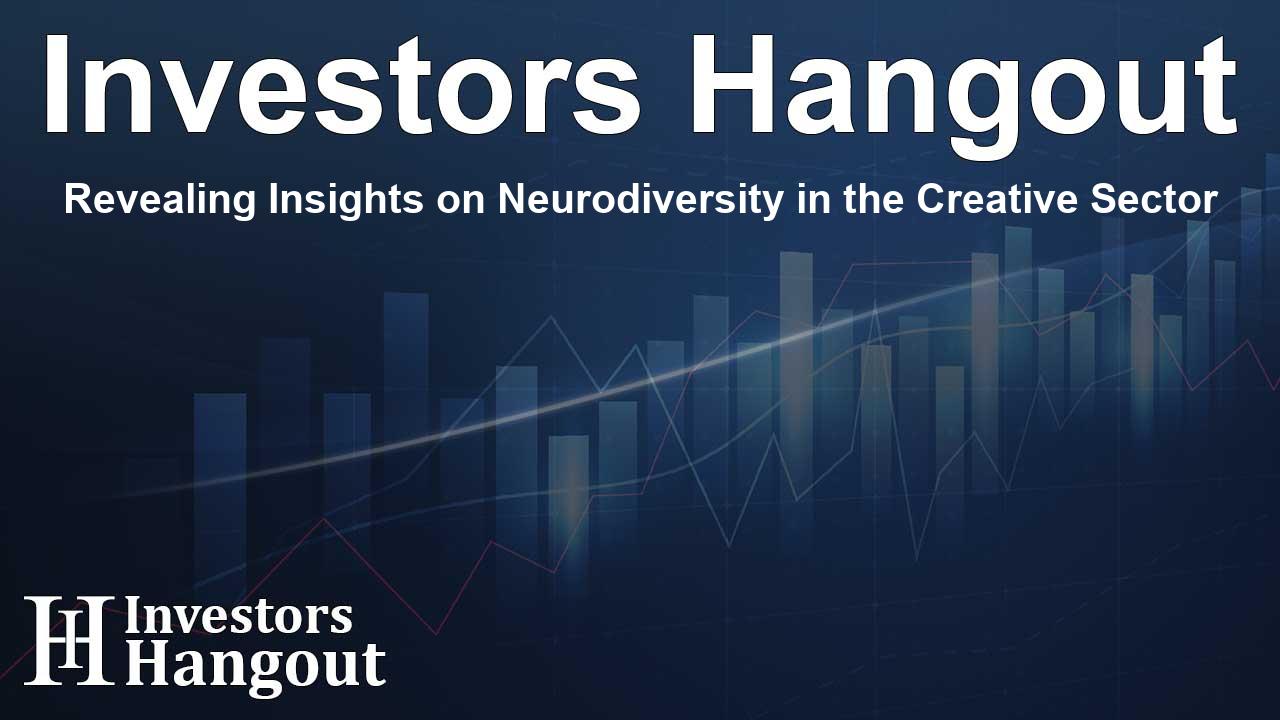Revealing Insights on Neurodiversity in the Creative Sector

New Research Discovers Neurodiversity Challenges
In the creative industry, an astonishing statistic reveals that nearly half of the workforce identifies as neurodivergent. This group, known for their ability to enhance productivity by up to 30%, often faces challenges that complicate their work life. Despite their valuable contributions, many neurodivergent individuals report feeling compelled to mask their true selves, which significantly impacts their overall job satisfaction and mental health.
The Strengths of Neurodivergent Creatives
Neurodivergent individuals are celebrated for their innovative thinking and problem-solving skills, which can propel creativity in the workplace. The study titled "Unlocking Neurodiversity: A Creative Advantage" sheds light on how these employees contribute unique perspectives that fuel creativity and drive innovation. Nevertheless, many organizations overlook the potential of these talented individuals, often favoring traditional working styles that may not cater to their strengths.
Challenges Faced by Neurodivergent Talent
Research indicates that neurodivergent employees frequently confront issues such as self-stigmas, imposter syndrome, and increased pressure to conform to conventional workplace norms. For instance, a concerning 90% of these employees engage in masking behavior, making them twice as likely to suppress their authenticity compared to their neurotypical peers. This phenomenon not only affects their work but also leads to heightened stress and burnout.
The Impact of Current Practices
The study also reveals that industry norms are often structured around neurotypical experiences, leaving neurodivergent employees feeling constrained. About three-quarters of all participants noted feeling creatively stifled due to rigid workplace practices. Scenarios such as back-to-back meetings and nonstop instant messaging can become overwhelming, exacerbating these individuals' challenges.
Key Insights on Workplace Dynamics
For neurodivergent individuals, tasks requiring real-time decision-making and rapid-fire collaboration can lead to significant difficulties. Approximately 70% reported time management as a particular challenge, while more than half indicated that organization was another hurdle. Such overwhelming expectations can deter them from achieving their full potential, resulting in job dissatisfaction for nearly one in three neurodivergent employees.
Advocating for Neurodiversity
As the research emphasizes, there is ample room for agency leaders and organizations to embrace neurodiversity as a source of strength rather than a challenge. By actively advocating for diverse talent and creating inclusive workplace environments, agencies can unlock new creative possibilities. Nathan Friedman, co-president of Understood.org noted the importance of authentically embracing neurodiversity to leverage creativity effectively.
Future Directions in Creative Industries
Moving forward, it is crucial for creative industries to rethink their standard practices. Embracing neurodivergent talent can pave the way for transformative ideas and innovative solutions that resonate in today’s complex market. The commitment to inclusivity not only benefits neurodivergent individuals but also enhances the creative output of entire teams.
Frequently Asked Questions
What is neurodiversity?
Neurodiversity refers to the range of differences in individual brain function and behavioral traits, recognizing that variations such as ADHD and dyslexia are part of human diversity.
Why is this research important?
This research highlights the unique challenges that neurodivergent individuals face in the creative industry, urging companies to recognize and harness their talents instead of overlooking them.
How can workplaces better support neurodivergent employees?
Workplaces can offer flexible environments, adapt communication styles, and remove rigid structures that do not align with the needs of neurodivergent employees.
What strengths do neurodivergent individuals bring?
Neurodivergent individuals often excel in problem-solving, creative thinking, and spotting patterns, making them invaluable assets in innovative fields.
What steps can agencies take to promote inclusivity?
Agencies can establish initiatives focused on education about neurodiversity, implement supportive policies, and foster an inclusive culture to embrace all forms of talent.
About The Author
Contact Riley Hayes privately here. Or send an email with ATTN: Riley Hayes as the subject to contact@investorshangout.com.
About Investors Hangout
Investors Hangout is a leading online stock forum for financial discussion and learning, offering a wide range of free tools and resources. It draws in traders of all levels, who exchange market knowledge, investigate trading tactics, and keep an eye on industry developments in real time. Featuring financial articles, stock message boards, quotes, charts, company profiles, and live news updates. Through cooperative learning and a wealth of informational resources, it helps users from novices creating their first portfolios to experts honing their techniques. Join Investors Hangout today: https://investorshangout.com/
The content of this article is based on factual, publicly available information and does not represent legal, financial, or investment advice. Investors Hangout does not offer financial advice, and the author is not a licensed financial advisor. Consult a qualified advisor before making any financial or investment decisions based on this article. This article should not be considered advice to purchase, sell, or hold any securities or other investments. If any of the material provided here is inaccurate, please contact us for corrections.
